- Articles
- Cherries
- Minutiae
- Q&A
- RAINN
- Releases
- Reviews
- Site News
- Them
- Toriphiles
- Touring
- TV/Radio/Web
- Video
News Archives
Keep an eye on our Twitter and Facebook pages since we often post quickie updates there when we're on-the-go.
During tours, we do our best to cover setlists in real-time on Twitter. If you want to tweet a show in, just DM or @ us on the day and tell us to watch your stream that night.
Tori is touring in 2017 to support the release of Native Invader. The European legs runs from early September through early October and the North American leg runs from late October to early December. We do not know if additional dates elsewhere will be added.
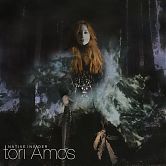
Native Invader (album, 2017)

Unrepentant Geraldines (album, 2014)

Gold Dust (album, 2012)
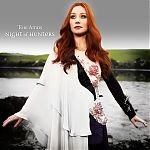
Night of Hunters (album, 2011)

Midwinter Graces (album, 2009)
 Abnormally Attracted To Sin (album, 2009)
Abnormally Attracted To Sin (album, 2009)
Live at Montreux 1991/1992 (DVD, 2008)
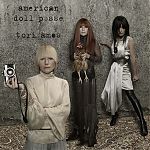
American Doll Posse (album, 2007)

A Piano (boxed set, 2006)
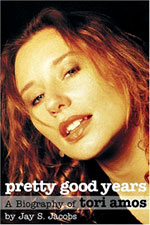
Pretty Good Years
(bio, 2006)

Fade To Red
(DVD, 2006)
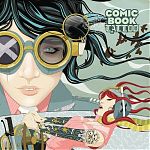 Comic Book Tattoo (book, 2008)
Comic Book Tattoo (book, 2008)News: Digital Spy Interview (September 21, 2011)
So, no, I don’t seek out reviews, but you get a sense of what’s happening. You know if something’s being received warmly or of it’s being received medium or cold. But let’s not kid each other – it’s always magical when people are embracing your work.
UK entertainment web site Digital Spy posted their interview with Tori earlier this week. In in, she and Mayer Nissim address Night of Hunters (surprise!), the relationship between the worlds of pop and classical music, some of tori’s older work and…Doctor Who!
Thanks to @iammatthewwolf for the tip!
Tori Amos interview: ‘It’s magical when people embrace your work’
Wednesday, September 21 2011, 4:12am EDT
By Mayer Nissim, Senior Entertainment Reporter
“I knew the dangers… do I wanna take the chance?” Tori Amos says. “Then the naughty fairy on my shoulder said, ‘What a cop-out. I used to respect you’. So, I had to take up the challenge!” When she puts it like that, it’s easy to see why the singer-songwriter couldn’t wimp out when a classical music label approached her to do a record.
The successful result was Amos’s 12th album Night of Hunters – a dense, original and multi-layered work which plays with the classics through a modern prism. We got on the phone to ask her all about it.
How would you describe your new album?
“It’s a 21st century song cycle, it’s based on classical themes. Deutsche Grammophon approached me and asked me if I would do this kind of project. That was the beginning.”
Do you think other artists would gain from looking beyond rock ‘n’ roll for influences?
“There’s a richness to the old works if you look before the 1950s. The chord progressions and the language was more complicated, especially in the jazz and classical world. You listen to the radio once in a while and you think, ‘Hang on a minute, that sounds a bit like a song I heard three weeks ago?’. A lot of songs are derivative of each other. Sometimes you need to take a departure from what you do to something that’s slightly different in order to get inspiration.”
Do you prefer writing concept-heavy, character-driven records?
“I like involved projects. I’m driven by the idea of characters and the song-cycle form is similar to a musical. I’ve been working on the musical [The Light Princess at the National Theatre] now it seems like for 5,000 years and that has informed my work. I’ve been studying narrative now for over five years by doing the musical. I don’t think I could have done it had I not been having on-the-chop training with the musical crowd.”
Are you worried by the way people download music as single MP3s today?
“People listen to music the way they want to listen to music. Doing something like this where the songs are interconnected, you can listen out of sequence – but it’ll take on a different meaning than when you take the journey. It’s sort of a sonic film. I thought it could be interpreted by a dance company. It could be Rite of Spring by Stravinsky – it is a story that happens.”
How is it different working with Deutsche Grammophon to major pop labels?
“The difference is you don’t approach them – they approach you. They won’t just put out anything on their label. It has to fit a certain criteria. Similar to Def Jam… this is the mother of all rap labels but for the classical world!
“I thought I may never get this opportunity ever again in my life. And I thought, ‘Oh my gosh, this is such a tall order’. It’s not a little project, it’s not a side project. If you get it wrong, you get it so wrong you just want to find the Devil and say, ‘Make me a Hobbit and I’ll go live under a rock for the rest of my life’. You could never show your face again!”
The reviews have been really positive; is that something you care about these days?
“I don’t seek them out because you have to imagine, [my 1996 album] Boys for Pele was not reviewed kindly. That was a time when I didn’t have the discipline about reading reviews that I have now. I had to learn on the job that you have to stay focused. You’ve made the work that you’ve made you’ve made the choices that you’ve made and you can’t reflect about it while you’re performing.”
Why not?
“That is not the time for reflection, when you’re taking stage. You’re in pieces and when you turn yourself inside out, you start becoming what everyone wants you to become. A lot of times that’s the diluted version. So, no, I don’t seek out reviews, but you get a sense of what’s happening. You know if something’s being received warmly or of it’s being received medium or cold. But let’s not kid each other – it’s always magical when people are embracing your work.”
Your covers album Strange Little Girls came out ten years ago this week – would you ever do a similar record?
“It’s not that I’m not interested in it, but you have to be careful when you do these projects like that. In a way this is the classical version of Strange Little Girls – but it’s Strange Little Dead Girls, right?”
A fan of yours once told us that your ‘Smells Like Teen Spirit’ was the definitive version – do you agree?
“I can’t agree with something like that! The original version was so moving and was so good. The piano seemed to trick me and say, if you could just look at the song itself… it is the anthem for a generation, yes, but it has the possibility to be ‘Yesterday’ by The Beatles. It really does! The song sort of winked and said ‘There’s a lot to me, you know’. And I said, ‘Okay, let’s investigate it’. The song was such a good song and so well-written that it could handle more than one arrangement.”
Adele has sold so many records, and PJ Harvey just won the Mercury Prize. How do you feel about the success of British solo female artists this year?
“I think it’s exciting that such talented women are doing so well. I think it’s an important message for other women that are up-and-coming.”
You and Neil Gaiman have a long-held friendship and artistic relationship – how do you feel about HBO’s upcoming adaptation of American Gods?
“Well, I’m a bit biased towards that one because it was written partly at the beach house in Florida, and he is just one of my favorite people in the universe. He’s a spiritual brother to me and has always been. We’re really close friends and yet I have great respect for his talent. So I’m thrilled. I love all his work, but American Gods was something I remember reading before it came out and I thought this is one of those stories that people will reread for a long, long time to come.”
Did you see his episode of Doctor Who [‘The Doctor’s Wife’] earlier this year?
“[My daughter] Natashya doesn’t miss an episode, she knows them all. She showed it to me and of course I thought it was great. She said, ‘Look, Uncle Neil’s episode was the best. They should have had him write the whole series this year because his portrait of the TARDIS, you can’t beat that’.”
Tori Amos’s new album Night of Hunters is out now.


